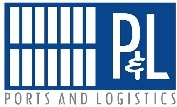<<Start thinking differently, potentially a lot differently, about how to comply with the new container weight rule that enters force July 1.
Shippers, carriers, forwarders and terminal operators should think less about the letter of the new SOLAS container weight requirement and more about complying with the spirit of long-standing rules that the shipper state the weight of its cargo, and that the carrier know the weight when ensuring its ship is seaworthy.
The “letter” of the verified gross mass rule under the Safety of Life at Sea convention says shippers must physically weigh their goods using one of two prescribed processes, but the spirit of SOLAS is that the shipper inform the vessel of the weight of the cargo so that safety at sea is ensured.
That is the point the U.S. Coast Guard is trying to make, in an attempt to mollify shippers’ mounting concern that the rule will add complication and cost to their supply chains. That point caught many shippers off-guard and even rankled some carrier executives when Coast Guard Adm. Paul Thomas, assistant commandant for prevention policy, made it during a recent listening session hosted by the U.S. Federal Maritime Commission.
For example, the SOLAS VGM rule does not extend into the U.S. heartland where shippers presumably would be physically weighing their cargo using Method 1 or 2 to produce a VGM that it would provide to the carrier. Thus, whether shippers actually undertake those processes, versus just stating a weight as they always have, is now called into question by comments from a senior Coast Guard official saying what the agency will — but more specifically, what it won’t be doing — to enforce the VGM rule.
“Some asked how an international body, that does their work in London (the International Maritime Organization, or IMO), could regulate U.S. domestic shippers operating out of our heartland. The simple answer is they cannot. Although SOLAS Regulation VI-2 is written in a manner that requires shippers to provide certain information to the vessel, there is no authority for the U.S. Coast Guard, or any other federal agency, to apply SOLAS to domestic shippers,” wrote Thomas, who will speak more to these issues at JOC’s 16th Annual TPM Conference in Long Beach, California, next week, in a blog post.
From the perspective of the U.S. agency responsible for enforcing all aspects of SOLAS, whether a shipper uses Method 1, which is obtaining a VGM by weighing the fully loaded container, or Method 2, which is weighing all the contents separately and adding that to the tare weight of the container, the VGM is a business matter between shippers and carriers.
Thus a carrier could be fully compliant with SOLAS if it were simply to use existing weights supplied to it, whether by the shipper on the bill of lading, or by a terminal that weighs containers upon arrival. The Coast Guard seems to be saying that there isn’t going to be anybody checking on how a VGM was obtained. And, the agency will only hold cargo if a carrier tells officials that a container lacks a VGM or if Coast Guard officials find that an inbound vessels is carrying containers without a VGM.
While the World Shipping Council may argue differently, what is important is the spirit of the rule, inclusive of longstanding practice, that a ship operator know the weight of the goods loaded on its vessel so that safety of life at sea can be ensured.
For example, it might be entirely acceptable to the Coast Guard for shippers to use the solution proposed by Port of Charleston President James Newsome to satisfy all requirements of the VGM rule. Under that scenario, the shipper produces no VGM but rather sends its container to the terminal as it normally does. Charleston weighs the containers upon arrival and makes the weights available for stowage planning. In other words, nothing different happens from what occurs today and the VGM requirement is satisfied.
Recent statements from Coast Guard officials indicate that everything apart from ensuring — as ships must do today — that the weights are provided and used for stowage planning, is a business practice that must arise out of the relationships that exist among the various private parties in the supply chain.>>
Fuente: JOC.com, Peter Tirschwell, http://www.joc.com/regulation-policy/transportation-regulations/international-transportation-regulations/facing-solas-rule-industry-needs-think-outside-box_20160226.html





